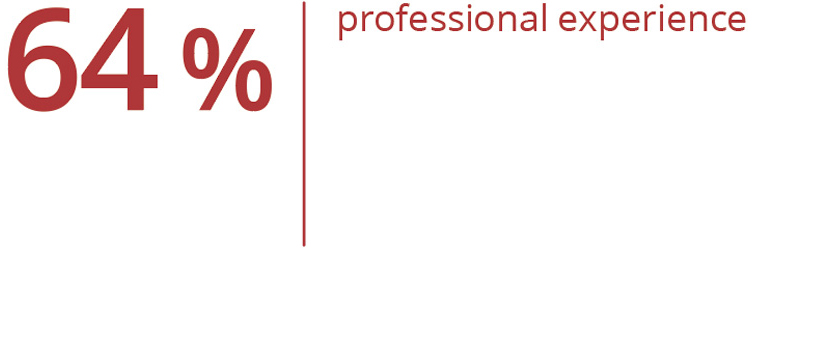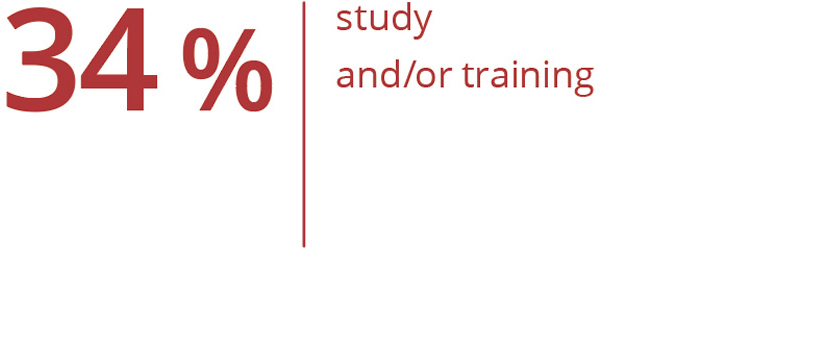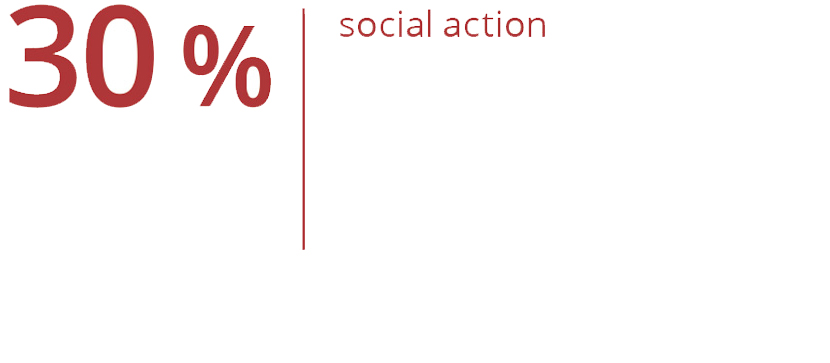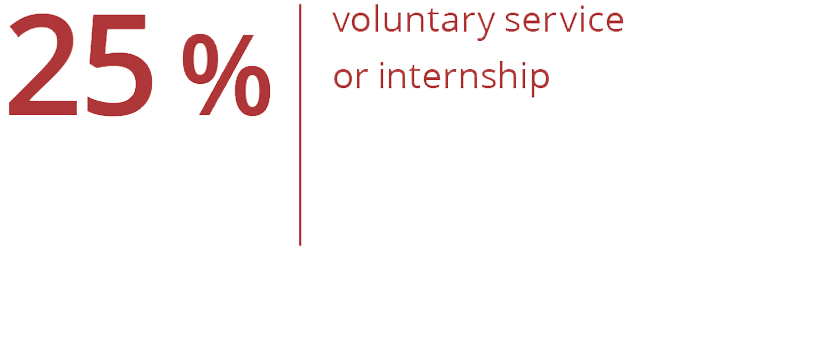Knowledge, experience, and connections
How do professionals come to undertake development service?
Most of the people who choose to undertake development service have long maintained an active personal interest in development cooperation, development policy, and/or peace work.
Before their last departure, about two thirds of the returnees were already working professionally in the field of development cooperation or development policy. More than half had already completed at least one term of service as a professional development worker.
And a large proportion of those who departed for the first time had also had some involvement in development cooperation beforehand. Many had encountered this field of work through an internship, voluntary service, or civic engagement.
About a third had already given some attention to the subject during study or training. Universities and other institutions of higher education now offer a variety of courses covering aspects of development policy, international cooperation, and peace and conflict management. Courses of study in the fields of environmental protection or power generation or with a global perspective also include content which is especially relevant for certain specialist professional positions. Most professionals therefore have an academic background nowadays.
Besides their education and occupation, the social background of professionals also plays a role: Sixteen percent of the respondents had a family member or a person with whom they had a close personal relationship who had worked in the field of development policy or development cooperation.
Many professionals encountered development service through ...




Results
Next: What motivates people to undertake development service?
Civic engagement and development service
Where do professionals choose to live after they have completed their service?
How to make a success of returning home – both for yourself and for your family
Career paths after development service
Development service as a qualification – What skills do professionals bring from their service?
How development service affects your future career
In-depth interviews about the study
As part of the AGdD study 2022 "Before and after development service: A quantitative study among returnees (2011-2020) in-depth interviews were conducted with some study participants. They talked about their experiences, motivations for a development service and its influence until today - e.g. in the form of social engagement after their return.
